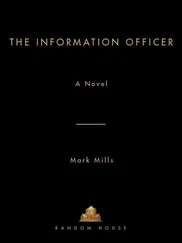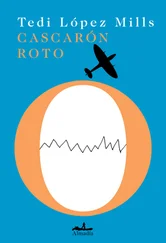Mark Mills - Amagansett
Здесь есть возможность читать онлайн «Mark Mills - Amagansett» весь текст электронной книги совершенно бесплатно (целиком полную версию без сокращений). В некоторых случаях можно слушать аудио, скачать через торрент в формате fb2 и присутствует краткое содержание. Жанр: Старинная литература, на русском языке. Описание произведения, (предисловие) а так же отзывы посетителей доступны на портале библиотеки ЛибКат.
- Название:Amagansett
- Автор:
- Жанр:
- Год:неизвестен
- ISBN:нет данных
- Рейтинг книги:5 / 5. Голосов: 1
-
Избранное:Добавить в избранное
- Отзывы:
-
Ваша оценка:
- 100
- 1
- 2
- 3
- 4
- 5
Amagansett: краткое содержание, описание и аннотация
Предлагаем к чтению аннотацию, описание, краткое содержание или предисловие (зависит от того, что написал сам автор книги «Amagansett»). Если вы не нашли необходимую информацию о книге — напишите в комментариях, мы постараемся отыскать её.
Amagansett — читать онлайн бесплатно полную книгу (весь текст) целиком
Ниже представлен текст книги, разбитый по страницам. Система сохранения места последней прочитанной страницы, позволяет с удобством читать онлайн бесплатно книгу «Amagansett», без необходимости каждый раз заново искать на чём Вы остановились. Поставьте закладку, и сможете в любой момент перейти на страницу, на которой закончили чтение.
Интервал:
Закладка:
He was doing double time along a dirt track about a mile from Cori when the Professor came to, slung over his shoulder like a sack of fish meal. Conrad closed his ears to the curses. The pummeling of the fist on his back was too weak to have any effect. They said there were no atheists in trenches, but not once did the Professor call out to God, remaining an unbeliever till the end, which came a few minutes later, half a mile shy of the aid station. Not that they could have done anything for him. Way too much of his blood had already soaked into Conrad’s fatigues.
He laid the Professor in the grass beside the track and sat with him a while. Then he carried him the rest of the way in his arms.
The two medics on duty at the aid station were enjoying a wellearned rest, but they insisted on checking Conrad over for injuries. He could have told them that beneath all the gore he would be completely unmarked. When they were done, they set him up with a shot of brandy and stretchered the body away.
He was gone before they returned, pounding off down the track, back towards the hills.
It was reckless soldiering, but stealth wasn’t the answer. He could have crept through the wooded slopes for the rest of the night and never found them. The answer lay in covering as much terrain as possible, crashing his way through the undergrowth, drawing attention to himself.
He was making his way up the side of a valley when a burst of fire raked the branches above his head. He hit the ground, scrabbling for cover behind a tree. Someone shouted in German—a challenge.
‘ Schwarze Teufel! ’ he called back: Black Devil. He heard the soldier relay the information to his comrades, a satisfying note of panic in his voice. Then the lead started flying again, tracers this time, which meant only one thing.
He was gone before the first mortar tore into the trees. If they were using the mortar they must be occupying an area of open ground beyond the tree line up near the ridge. He dismissed the idea of a direct assault, not because the terrain would play in their favor, but because he figured they’d soon be thinking about retreating. They knew who they were up against, they’d heard the stories, and the silence of the night would soon transmute into fear.
He was waiting for them near the foot of the neighboring valley—two mortar crews, six men, pounding down a woodland path, equipment clattering. Whether they were the ones responsible, he neither knew nor cared, his head thick with thoughts of vengeance.
He had already pulled the pins from the grenades, but he waited for the point man to pass before tossing them, opening fire before they exploded, ducking behind a tree as they did so.
The two who didn’t die immediately, he finished off with the knife. One was very young, wispy hairs masquerading as a mustache, wheezing his last terrified breath as Conrad slowly slid the blade between his ribs, talking to him, cursing him, the same words the Professor had hurled at him, handing them on: take these with you.
When he was done, he smoked a cigarette then placed the barrel of the M-1 in his mouth, but he was unable to pull the trigger.
He returned to Cori via the pasture, recovering the Professor’s shattered glasses from the long grass.
It was a miracle that the glasses had somehow stayed in his possession for the remainder of the war. He took it as a sign that they had, and he’d kept them on the writing desk in his bedroom ever since.
One evening, as Lillian was undressing, she had asked him, ‘What are these?’
She stood naked beside the bed—completely unabashed, as she had been from the very first—turning the glasses in her hands.
‘Nothing,’ said Conrad.
‘Are they yours?’
‘I don’t want to talk about it.’
She replaced the glasses on the desk, turned the light off and joined him in the bed, snuggling up close.
‘If I were you,’ she said softly, ‘and I didn’t want to talk about it, I wouldn’t have left them out.’
He lay there in silence, hating her for seeing through him, loving her for exactly the same reason. She made no attempt to press him further, and that was probably why he began to speak.
He didn’t start at the beginning and he didn’t start at the end, he started in the middle and he leapt around, doubling back on himself. She asked very few questions. There was no need; the words tumbled out of him.
He told her about the Professor and his beaky nose and their games of chess and the gut-rot hooch they used to buy from the officers’ mess—alcoholic footwash destined for the brass, but distilled through bread and flogged off to the rank-and-file by the batmen. He told her about the low, menacing profile of a Tiger tank, the silence of an 88 shell as the sound struggled to keep up with it, the spine-chilling shriek of the Nebelwerfer rockets, and he tried to describe the helpless terror of a sustained artillery barrage, bent double in a slit trench, the ground quaking, shaking your fillings loose.
He told her about the friends who had died, the ones who had cracked up and been shipped out, the ones who had been maimed. He described the horrors of the ‘far ward’ at the field hospital, nurses holding cigarettes to the mouths of men who had lost their arms, others with whole parts of their faces missing, being fed ground liver squeezed through a tube.
He told her what he had done to the men who might or might not have been responsible for the Professor’s death, and he described their triumphal entry into Rome a few days later. He detailed the baroque splendor of Castel Gandolfo, the pope’s summer residence perched high above the shores of Lake Albano where they were sent to recuperate for a few weeks. Unreal afternoons spent lazing on the volcanic sand beaches of the lake, swimming in the aquamarine water, sipping crisp dry Frascati wine from the nearby hills and flirting with the local girls. Dreamlike memories they desperately clung to when their orders finally came through and they found themselves back in the thick of the action—in France this time, clearing Germans from a scattering of islands off the south coast, then fighting their way eastwards along the Riviera, securing the border with Italy, where the mountains collided with the sea and where Conrad’s war came to an abrupt end.
He told her how it happened, though not why, because he wasn’t sure of the answer himself, even then. All he knew was that war left you clinging to the raft of your own sanity, not because of the horror—that, you grew used to—but because it tore at the heart of every man’s being, his sense of who he was.
You could be brave one minute, a coward the next, selfless then cruel, compassionate and heartless within moments of each other. You spent a lifetime forging a view of what made you tick, what marked you out from other men, massaging yourself into being. Then war came along and ripped that construct limb from limb. It seized you by the neck, pressed your face to the mirror and showed you that you weren’t one thing or another, but all things at the same time. The only question was: which bit of you would show itself next? That’s what fucked you up. The not knowing.
He told Lillian all this. It was far more than he had ever told anyone, though that wasn’t saying much. The only other person he had spoken to was the doctor at the hospital in England, and that had been under duress.
When he was finished, Lillian held him tight and kissed him on the neck, her cheek wet with tears, cold against his skin.
‘It’s okay now,’ she said.
And he had laughed, not in derision, not in amusement, but because she was absolutely right.
It was.
Twenty-Five
Wakeley waited till she was cleaning the bedrooms on the south side of the house before making his way outside to her car.
Читать дальшеИнтервал:
Закладка:
Похожие книги на «Amagansett»
Представляем Вашему вниманию похожие книги на «Amagansett» списком для выбора. Мы отобрали схожую по названию и смыслу литературу в надежде предоставить читателям больше вариантов отыскать новые, интересные, ещё непрочитанные произведения.
Обсуждение, отзывы о книге «Amagansett» и просто собственные мнения читателей. Оставьте ваши комментарии, напишите, что Вы думаете о произведении, его смысле или главных героях. Укажите что конкретно понравилось, а что нет, и почему Вы так считаете.











